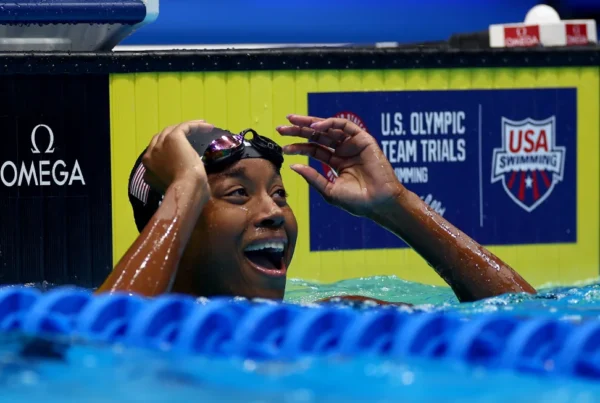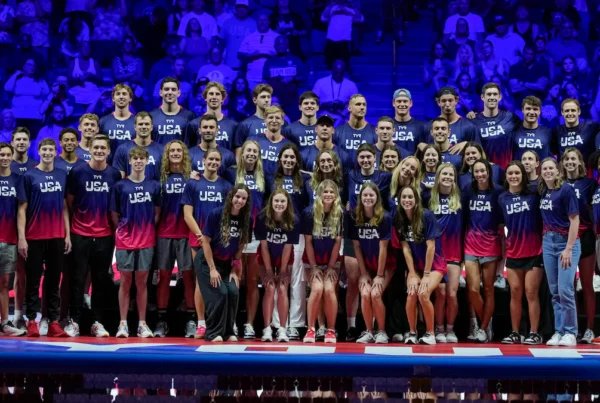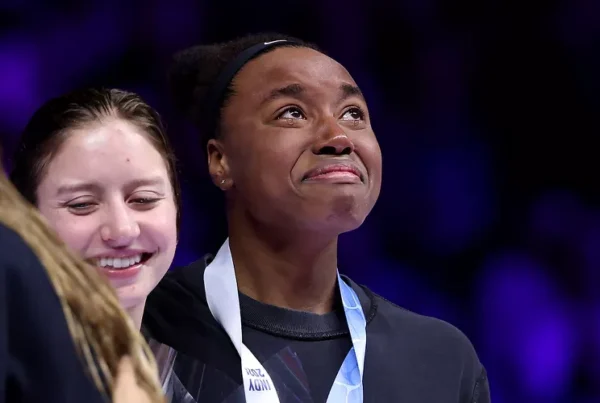Two-time Olympian Simone Manuel is 27 and thinking about her legacy.
She is already the first Black woman to win Olympic gold in an individual swimming event. She holds three world records and has won 13 gold medals in international competition. And she is currently training to qualify for the 2024 Olympics next summer in Paris.
But legacy, to Manuel, encompasses not just her accomplishments in the pool but her impact outside of it. The Sugar Land native wanted to do more.
On Thursday, Manuel announced the launch of her foundation, which will provide education and resources around water safety and swim readiness for Black, Indigenous and people of color.
Manuel knows firsthand the difficulties of being a person of color in swimming, a predominantly white sport. She has worked for years with other organizations to make swimming more racially inclusive, including as an ambassador for the USA Swimming Foundation and as a partner with LeBron James’ I Promise School.
The Simone Manuel Foundation is an extension of those efforts, she said in an interview with the Chronicle.
“Just being one of few (Black people) in the sport of swimming and knowing the impact that my journey has had on a lot of people has really inspired me to want to do more,” Manuel said. “And obviously knowing the staggering statistics within my own community, and BIPOC children and the disparity in which lives are lost due to drowning, I just wanted to use my platform to make an impact in the best possible way that I could. So that’s really been the reason why I wanted to start the foundation and just build an opportunity to save lives and provide education and awareness around swimming and water safety.”
She’s focusing on partnering with organizations in her hometown of Houston for the foundation’s first year, with plans to expand to Arizona later on.
According to a CDC study published in 2021, drowning death rates for Black people in the U.S. are 1.5 times higher than for white people.
Manuel said there are several barriers that prevent more people of color from getting involved in swimming, including lack of education as well as lack of access to pools and funding for swim lessons.
Continue reading… (via Houston Chronicle)






